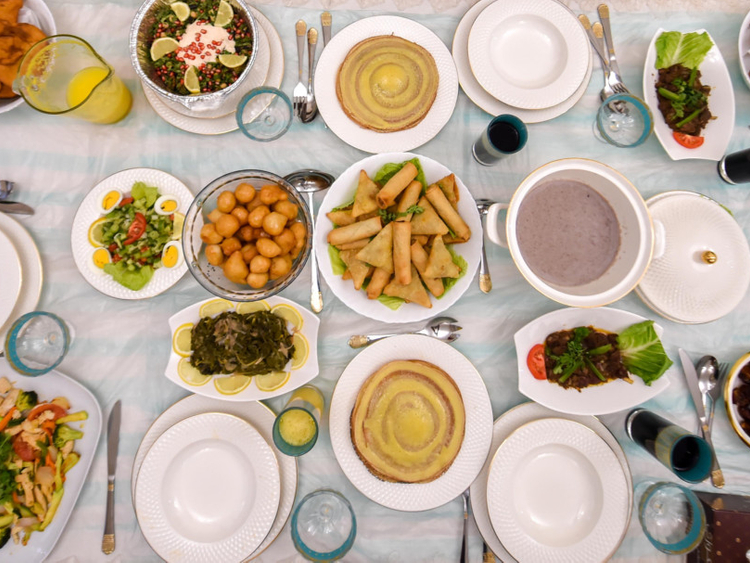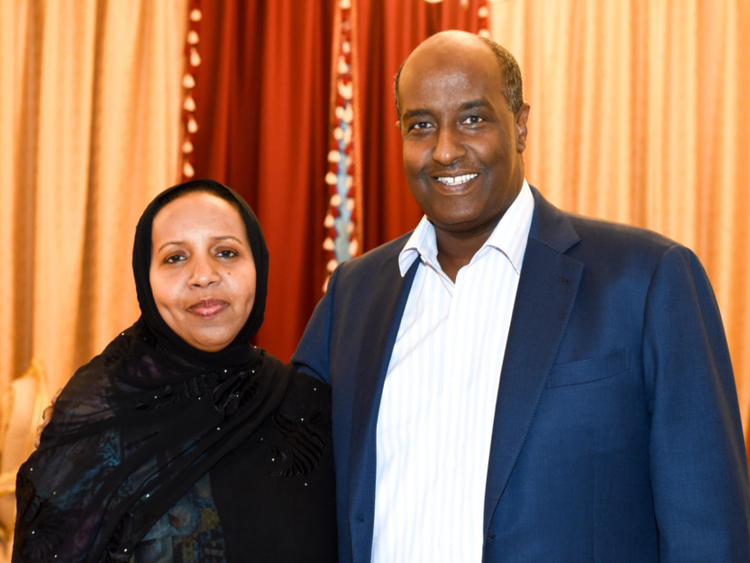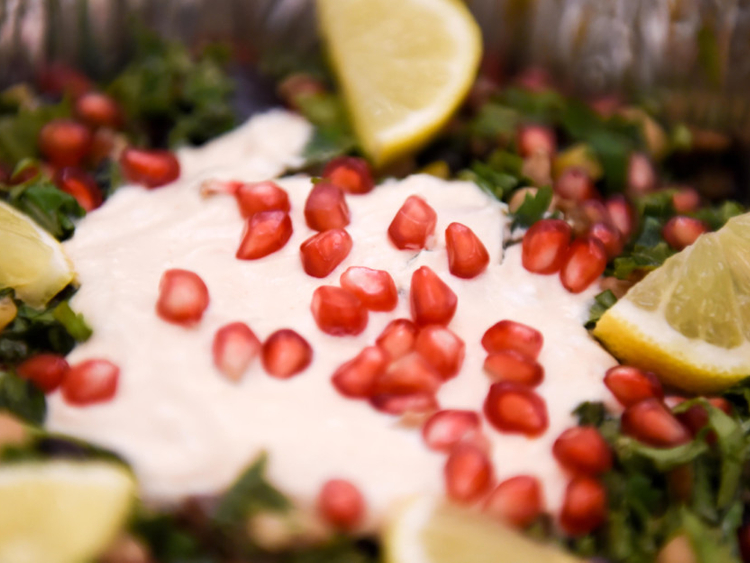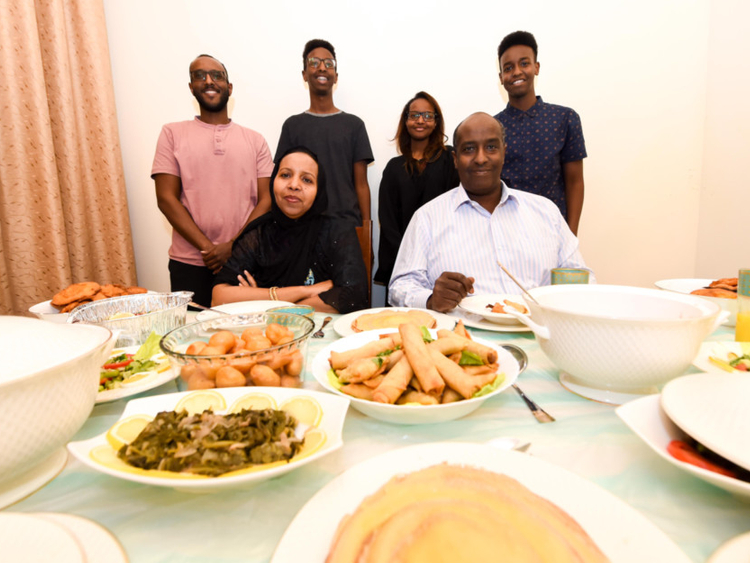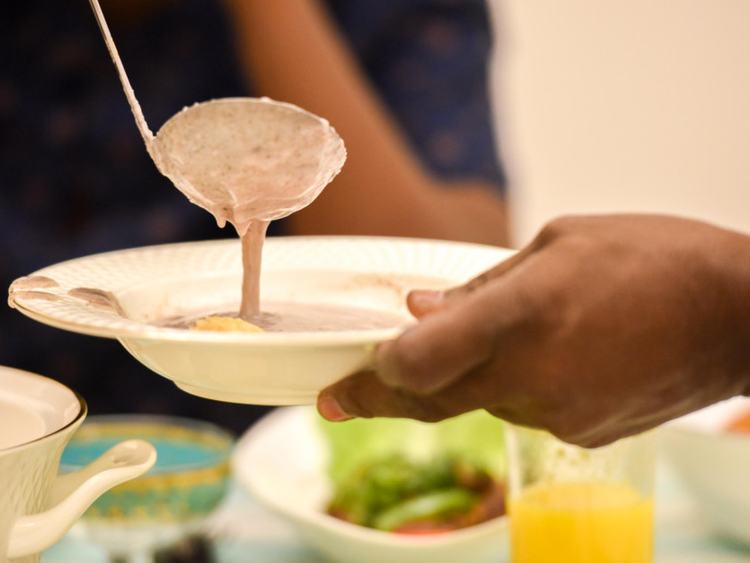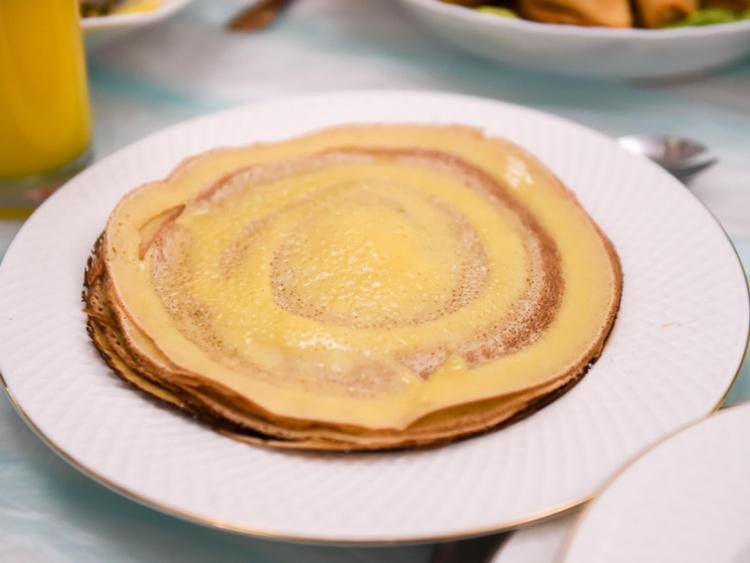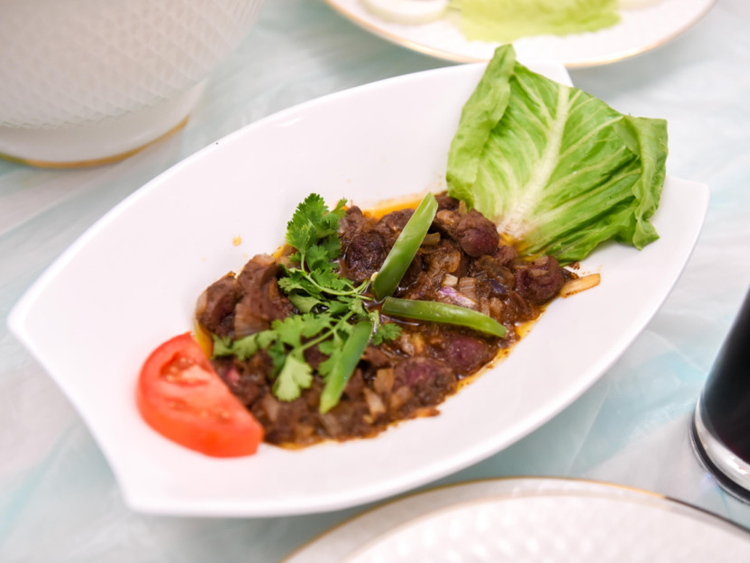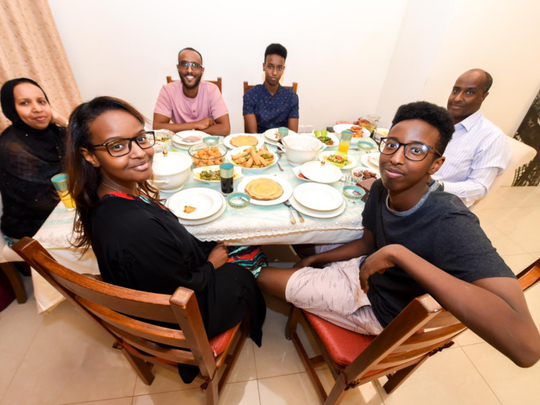
Abu Dhabi: For the Abdulle family from Somalia, Ramadan is a family affair steeped in tradition. And this year, the holy month will be extra special.
The family’s newest members — grandchildren to Dr Abdishakur Abdulle and his wife, Amal Abdi Aden — will soon be coming down for Eid, and the rest of the family is eagerly awaiting their arrival.
“Our eldest daughter, Muneera, had twin boys earlier this year. They are now four months old, and they will be flying down from the [United] States ahead of Eid. We can hardly wait. I’ve met them myself but my other children and husband haven’t. So in a way, it will be a special Ramadan gift for us,” Abdi Aden, 53, a spa manager, told Gulf News.
In the meantime, the family has settled into its Ramadan routine, which prioritises fasting and Quran recitation. Iftar preparations start at about 2pm every day, when Abdi Aden and her 20-year-old daughter Hiba head into the kitchen.
The meal needs to serve six people on the day Gulf News visits the Abdulle home in Al Ain, including Dr Abdulle, Abdi Aden, Hiba, as well as 30-year-old Mohammad, 17-year-old Basheer and 14-year-old Abdul Rahman.
“Four of my seven children are here with us at the moment. The other three — Muneera, 28, Iman, 23 and Aber, 22 — will join us before Eid. That is when our meals will feel complete, and we would have loved to have you visit with the entire family present,” Abdi Aden says.
For now, Abdi Aden has prepared the dough to make injera, a sourdough pancake that is a staple of every Somali iftar. The stack of about 20 pancakes will sit in the middle of the table, surrounded by accompaniments, which today include succulent meat cubes and fried kidneys.
“Injera is such an essential part of our iftar that on some days, we eat it on its own, or simply dipped in olive oil, sugar or maple syrup,” Abdi Aden explained.
Meanwhile, Hiba gets busy making sambousas filled with onion and minced meat — another iftar favourite. On other days, the filling can vary to include a chicken mix or tuna.
In terms of drinks, a Ramadan essential in the household is unsweetened watermelon juice, which is both healthy and hydrating.
There will also be a green salad, some cheese or spinach fatayer, and two fruits that help aid digestion and boost energy levels after a day of fasting: papaya and banana.
“It is tradition to include papaya slices and bananas on an iftar table,” Abdi Aden said.
For a treat, there is often some custard layered with cake and fresh fruits.
An hour before iftar, the family begins to set the table.
Dr Abdulle, 55, is a director of public health research at a university in Abu Dhabi, and says he prefers iftar at home to anywhere else.
“The elements of a Somali iftar are unique, in my opinion, and I like to savour them best at home,” he said.
This statement put a smile on Abdi Aden’s face.
“My husband prefers our homemade iftar to anything else. He loves traditional Somali food. For my part, I do enjoy South Asian cuisine, including Pakistani and Indian delicacies, quite a bit. The children, too, like variety, so we opt for an iftar buffet at least once during Ramadan,” Abdi Aden says.
Suhour, the predawn meal before the start of the fast, is also traditionally Somali. Abdi Aden says that the family prefers to have ‘sareen’, a creamy porridge made of wheat that is eaten with olive oil or sugar.
“It is a filling meal that keeps hunger away during the day, and we wash it down with some milk,” Abdi Aden says.
“In general, I would say we try to keep our meals healthy. Some of the dishes include oil, of course, and some are fried, but in general, we keep the calories to a minimum,” she adds.
After ending their fast, the male members head out for Maghrib prayers.
“They will have the rest of the meal when they return from the mosque. Soon after, it will be time for Taraweeh, and I will head out to the spa for my evening shift. I usually offer Taraweeh prayers there. I must say, the night prayer is one of my favourite aspects about the holy month,” Abdi Aden said.
“Other than this, I love reciting and getting to know the Quran. Ramadan is the only time of the year when we can dedicate so much of our time towards the holy book,” she added.
In general, Ramadan for the family has been much the same for the last two decades, and they wouldn’t change any of it.
Injera recipe
■ Starter mix: Mix 1 cup of white corn meal, half cup of sorghum flour (juwar flour), 1 tablespoon sugar and 1 tablespoon dry yeast with 1 cup of lukewarm water in a bowl. Leave it uncovered to soak for an hour.
■ In a large bowl add 4 cups of self-rising flour, one-fourth cup sugar and the starter mixture. Mix by hand, adding water in stages to avoid lumps. Beat the batter until smooth. Cover the bowl with cling film and leave on the countertop to ferment for two hours.
■ Heat a non-stick pan on medium. Stir the batter, and with a ladle pour the batter in the centre of the pan and use the bottom of the ladle to spread it around in a spiral or swirl pattern quickly. The injera is done when the batter dries up. Stack them to keep them soft.


